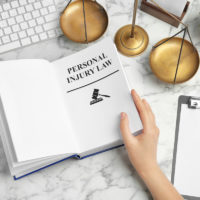What’s the Difference between Recklessness & Negligence?

In a New York personal injury case, one of the key factors to prove is the degree of culpability of the defendant. As a plaintiff, you must first prove that they actually did something they should not have, or failed to do something they should have. The question then arises: Just how outrageous was their conduct? Did they simply fail to do the correct thing, such as mop up a spill or check their blind spot before turning? Or did they act especially poorly, to the point of gross negligence or recklessness? The answer to that question can be the difference between recovering some damages and recovering massive damages against the defendant, and in some cases it can be the difference between having or not having a claim at all. Learn below about the differences between negligence and recklessness, and contact a knowledgeable Poughkeepsie personal injury attorney at the Law Office of Taran M. Provost, PLLC if you’ve been hurt by someone else’s conduct in New York’s Hudson Valley.
What does “negligence” mean?
In order to bring a personal injury claim, the plaintiff must show duty, breach, causation, and damages. That is, the defendant had a duty to do something or not do something, they breached that duty, their breach actually caused you injury, and you actually suffered damages as a result. Often the duty and breach elements will be satisfied by a showing of negligence: Someone else acted carelessly and that harmed you. They should not have turned their car into yours, they should have made sure their dog was secure so that it wouldn’t escape and bite you, etc.
Sometimes duty is separate: Shopkeepers have a duty to keep their premises safe for customers, for example, by making sure that their walkway is either dry or appropriately labeled as wet after a rainstorm. If they fail to uphold that duty, and you slip and fall, we say they negligently breached their duty. Negligence is often judged by asking whether a reasonable person would have acted as the defendant did under the circumstances. If you slip on a spill that had just occurred a minute earlier, then perhaps no reasonable person could have cleaned the spill in that amount of time, and thus they did not act negligently in failing to clean it up before you slipped.
What does “recklessness” mean?
When a person’s conduct goes beyond mere negligence, it may reach the level of recklessness. In personal injury matters it is also often called “gross negligence.” Recklessness occurs when someone knows of a risk and chooses to ignore it, putting other people in danger. A reckless actor may not have “intentionally” harmed people, but the way they acted demonstrated that they disregarded a substantial risk that they would harm others. Driving the wrong way down a street, for example, could be considered reckless conduct.
According to the New York Pattern Jury Instructions on punitive damages, a defendant’s conduct is “wanton and reckless” when it “demonstrates conscious indifference and utter disregard of its effect upon the health, safety and rights of others.” New York courts have defined it as “intentionally commit[ing] an act of an unreasonable character in disregard of a known or obvious risk that was so great as to make it highly probable that harm would follow.”
How is “recklessness” different?
The typical personal injury matter, such as a car accident or a slip-and-fall, requires proving only negligence to bring a claim. Some claims, however, require a higher standard. For example, to a claim against a New York police officer for crashing into you while responding to an emergency call, you must prove that the officer “acted in reckless disregard for the safety of others.” The law wants to give police officers more leeway to respond to emergencies, so you cannot simply sue them whenever you are injured during an emergency. You must instead prove that they acted extremely poorly. There are other such special circumstances.
In New York, you can only claim punitive damages if you can prove wanton and reckless conduct. Punitive damages are meant to go beyond merely compensating the plaintiff for their injury, and instead should also punish the defendant for their conduct. The idea is to deter people from acting as the defendant did in the future. For that reason, you may be able to recover two or three times your “actual” damages if you are able to claim punitive damages. Big personal injury verdicts often come from punitive claims.
Experienced Injury Lawyers can Help after a New York Accident
If you or a loved one has been injured or killed by the negligent or reckless conduct of someone else in New York, seek experienced legal help to evaluate your potential claims by contacting the dedicated and passionate Poughkeepsie personal injury lawyers at the Law Office of Taran M. Provost, PLLC for a free consultation at 845-675-3243.
